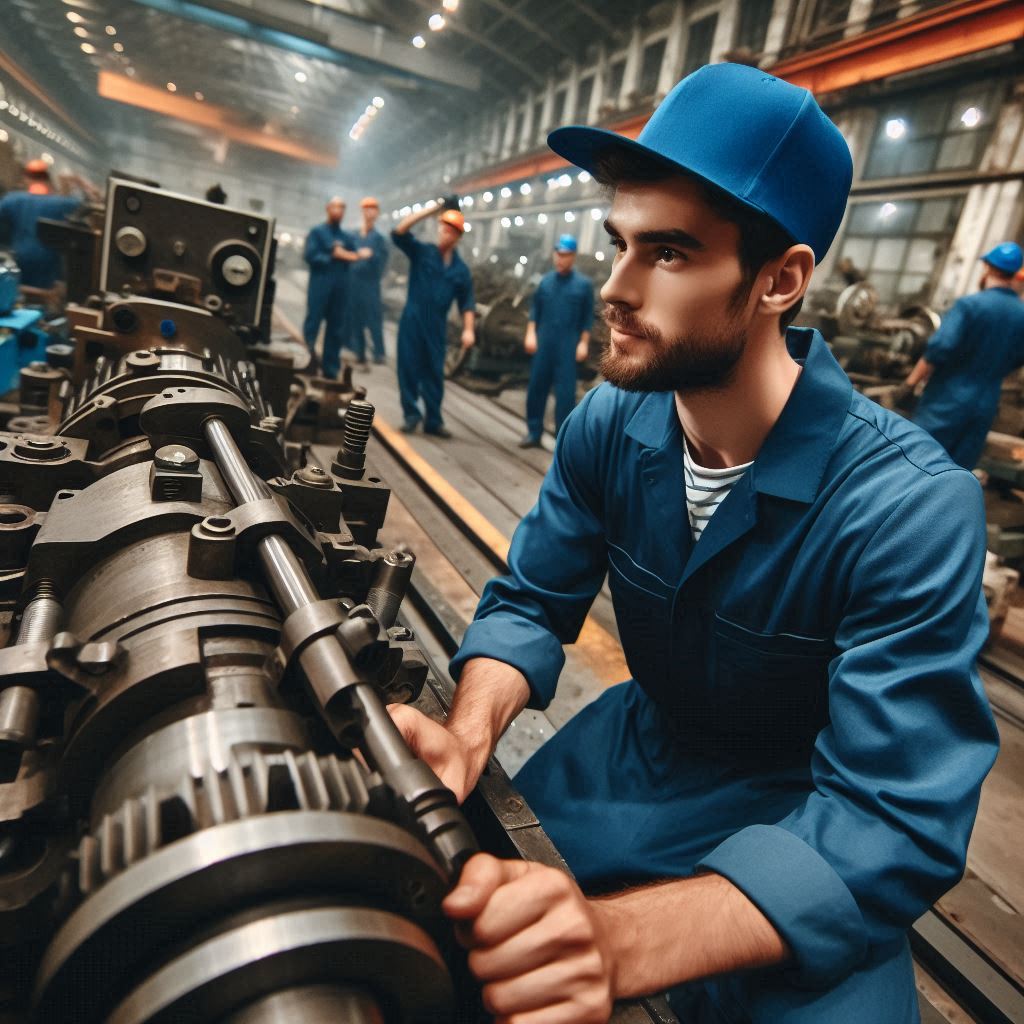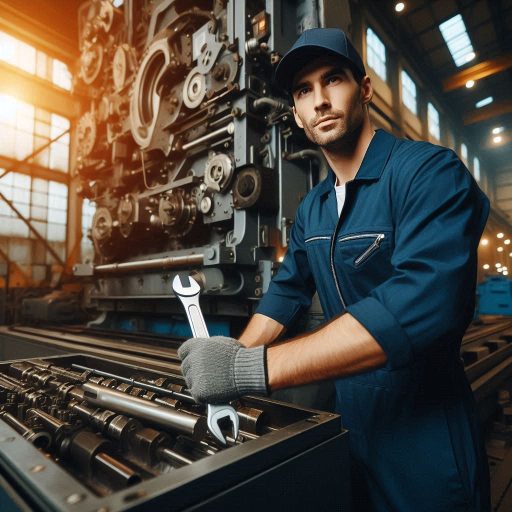Introduction
Overview of the Importance of Solar PV Installers in the Renewable Energy Industry
Solar PV installers are vital to the renewable energy sector, enabling the effective deployment of solar power systems as Solar PV Installer Job Misconceptions.
Their expertise ensures that solar panels are correctly installed, maintained, and repaired, facilitating the capture of clean, renewable energy from the sun.
This work is crucial for advancing sustainability goals, reducing reliance on fossil fuels, and lowering greenhouse gas emissions.
By supporting the growth of solar energy, installers contribute significantly to a greener, more sustainable future.
Common Misconceptions That People Have About the Job
Despite their importance, several misconceptions surround the role of solar PV installers.
Many believe the job is straightforward, focusing only on the physical installation of panels, when it actually involves complex electrical systems and troubleshooting.
Others view the position as merely manual labor, ignoring the technical skills and safety measures required.
Additionally, some question the job‘s stability and career growth potential, overlooking the expanding demand for renewable energy solutions.
Clearing up these misunderstandings is essential for accurately appreciating the profession and its impact.
Misconception: Solar PV Installers Only Need Physical Strength
Many people believe that solar PV installers only require physical strength to excel in their jobs.
This misconception oversimplifies the role.
While the job demands physical stamina, it‘s far from just a labor-intensive position.
Solar PV installers must have a solid understanding of electrical systems, technical skills, and problem-solving abilities.
Explanation of the Physical Demands of the Job
The physical demands of the job are undeniable.
Installers work on rooftops, often in harsh weather conditions, and must lift and maneuver heavy solar panels.
They also need to climb ladders and work at heights, which requires balance and coordination.
Physical fitness is essential, but it is not the only requirement.
While installers need strength to handle the physical aspects, it‘s important to note that the job also requires endurance.
Installers often spend long hours on their feet, performing repetitive tasks.
They must maintain a high level of energy and focus to ensure the quality and safety of the installation.
The Need for Technical Skills and Knowledge in Electrical Systems
However, focusing solely on the physical aspect neglects the job‘s technical side.
Solar PV installers must possess a comprehensive understanding of how solar energy systems work.
They need to be well-versed in the intricacies of photovoltaic technology, which converts sunlight into electricity.
This knowledge goes beyond simply knowing how to place panels on a roof.
It involves understanding how to connect these panels to the electrical grid or battery storage systems efficiently and safely.
Additionally, solar PV installers need to be familiar with local electrical codes and regulations.
Compliance with these codes ensures that the installation meets safety standards and operates efficiently.
This requires installers to keep up with changing regulations and technologies, which demands continuous learning and adaptation.
Installers also need to interpret and follow detailed installation plans.
These plans require reading blueprints, understanding wiring diagrams, and making precise measurements.
Missteps in these areas can lead to inefficient systems or, worse, dangerous situations.
Therefore, accuracy and attention to detail are paramount, as even small errors can have significant consequences.
Moreover, troubleshooting skills are essential.
Not every installation goes smoothly, and installers often encounter unexpected challenges.
Whether it‘s dealing with obstructions, incompatible components, or system malfunctions, they must quickly diagnose and solve problems on the spot.
This requires critical thinking and a deep understanding of the systems they‘re working with.
Review, while physical strength is important, the job of a solar PV installer demands much more.
Technical skills, electrical knowledge, and problem-solving abilities are crucial for success in this challenging yet rewarding field.
Read: Top Surveying and Mapping Technician Employers
Misconception: Solar PV Installers Don‘t Need Formal Education
A common misconception about solar PV installers is that formal education isn‘t necessary to excel in the job.
This belief undermines the importance of proper training and certification.
In reality, becoming a successful solar PV installer requires a solid foundation of technical knowledge and skills, which formal education and training programs provide.
Importance of Training and Certification Programs
Training and certification programs are crucial for anyone aspiring to become a solar PV installer.
These programs offer structured learning environments where individuals gain essential knowledge about solar technology, electrical systems, and safety protocols.
Without this formal education, installers might lack the critical understanding required to safely and efficiently set up solar systems.
Certification programs, such as those offered by the North American Board of Certified Energy Practitioners (NABCEP), validate an installer‘s competence and credibility.
These certifications are often required by employers and are essential for career advancement.
They ensure that installers meet industry standards and are equipped to handle the complexities of the job.
In some regions, certification is mandatory to legally perform installations, emphasizing the role of formal education in the profession.
Technical Skills and Knowledge Required to Excel in the Job
The technical skills required for solar PV installation go far beyond basic handyman abilities.
Installers need to understand the principles of electricity, including how photovoltaic cells convert sunlight into electricity.
This knowledge is vital for correctly sizing and configuring solar panels, inverters, and other system components to match the energy needs of a building.
In addition to electrical knowledge, installers must be proficient in reading and interpreting technical drawings and blueprints.
These documents outline the layout and wiring of solar systems, so installers must understand them to ensure accurate installations.
Formal training programs often include coursework on how to interpret these plans, which helps prevent costly mistakes.
Knowledge of local electrical codes and regulations is another critical aspect of the job.
These codes vary by region and are essential for ensuring that installations are safe, compliant, and eligible for incentives.
Formal education covers these codes and teaches installers how to apply them in real-world scenarios.
Safety training is also a significant component of formal education.
Solar PV installers work in potentially hazardous environments, often at heights and with electrical systems.
Understanding and adhering to safety protocols is essential to prevent accidents and injuries.
Training programs provide this vital safety education, preparing installers to work in challenging conditions without compromising their well-being.
To sum it up, the belief that solar PV installers don‘t need formal education is a misconception.
Training and certification programs are essential for gaining the technical skills, knowledge, and safety awareness necessary to excel in this field.
Formal education not only enhances an installer‘s competence but also opens doors to career opportunities and advancement in the growing solar industry.
Read: Safety Tips for Field Surveying Technicians
Misconception: Solar PV Installation Is a Temporary Job
Many people mistakenly believe that solar PV installation is a temporary or short-term job.
This misconception overlooks the rapidly growing demand for renewable energy and the numerous career opportunities within the field.
Solar PV installation is not just a fleeting occupation; it‘s a gateway to a sustainable and rewarding career with long-term prospects.
Explanation of the Growing Demand for Renewable Energy
The demand for renewable energy, particularly solar power, is surging globally.
As concerns over climate change intensify, governments, businesses, and homeowners are increasingly investing in solar energy solutions.
Policies supporting green energy initiatives and the declining cost of solar panels are accelerating this shift.
This growing demand ensures that solar PV installation will remain a critical and stable profession for years to come.
According to the International Energy Agency (IEA), solar power is expected to lead the expansion of renewable energy capacity worldwide.
This expansion means that more solar systems will need to be installed, maintained, and upgraded, creating a continuous need for skilled professionals in the solar industry.
As the world moves towards cleaner energy, the role of solar PV installers will become even more crucial, making it a secure and lasting career choice.
Opportunities for Career Growth and Advancement in the Field
Solar PV installation offers numerous opportunities for career growth and advancement.
The industry is diverse, with a range of roles that go beyond installation.
After gaining experience as an installer, individuals can move into positions such as project management, system design, or sales.
These roles require a deep understanding of solar technology, which installers develop through hands-on experience.
Moreover, with the increasing complexity of solar systems, there is a growing demand for specialists who can focus on specific areas, such as system design or energy storage integration.
This specialization can lead to higher-paying roles and positions with more responsibility.
Continuous advancements in solar technology also mean that there are always new skills to learn, providing a dynamic and evolving career path.
For those interested in leadership, management roles in solar companies offer another avenue for advancement.
Experienced installers can progress to supervisory positions, overseeing installation teams and ensuring projects are completed efficiently and safely.
With further education or certification, some may even move into roles like solar energy consultant or system auditor, where they can leverage their expertise to optimize solar installations for maximum efficiency and compliance.
The global shift towards renewable energy is also opening up international opportunities.
Skilled solar PV installers are in demand not just locally but worldwide, offering the potential for work in different regions and countries.
This global demand further solidifies solar PV installation as a career with enduring potential and scope for significant personal and professional growth.
Generally, solar PV installation is far from a temporary job.
The growing demand for renewable energy and the wide range of career opportunities available make it a stable, long-term profession with ample potential for advancement.
Misconception: Solar PV Installers Don‘t Make a Decent Income
A common misconception is that solar PV installers don’t earn a decent income.
This belief fails to consider the competitive salaries and the significant potential for increased earnings with experience and certifications.
Solar PV installation is not only a sustainable career choice but also a financially rewarding one.
Statistics on Average Salaries for Solar PV Installers
Contrary to the misconception, solar PV installers earn competitive wages.
According to the U.S. Bureau of Labor Statistics (BLS), the median annual salary for solar PV installers in 2023 was around $50,000.
This figure varies depending on factors such as location, experience, and the complexity of the projects.
In some states, particularly those with high demand for solar energy, installers can earn significantly more.
For instance, in states like California and Massachusetts, experienced installers can make upwards of $60,000 to $70,000 annually.
The salary for solar PV installers is also expected to rise as the demand for renewable energy increases.
The solar industry continues to grow, creating a strong job market with opportunities for higher wages.
Additionally, the relatively low barriers to entry, coupled with competitive pay, make this field attractive to those seeking a stable and rewarding career.
Potential for Increased Earnings With Experience and Certifications
The potential for income growth in the solar PV installation field is substantial.
As installers gain experience, their earning potential increases.
Installers with a few years of experience often see their salaries rise significantly.
Those who take on more complex projects or move into supervisory roles can expect even higher compensation.
Certifications also play a crucial role in boosting income.
Installers who obtain certifications from recognized bodies like the North American Board of Certified Energy Practitioners (NABCEP) often command higher salaries.
These certifications demonstrate advanced knowledge and expertise, making certified installers more valuable to employers.
Certified installers can earn 10% to 20% more than their non-certified counterparts.
Moreover, as installers gain more specialized knowledge‘such as expertise in solar system design or energy storage‘they can take on higher-paying roles.
Specialized skills are in high demand as solar technology becomes more sophisticated, offering installers the chance to increase their earnings.
Career advancement opportunities further enhance earning potential.
With experience, installers can move into positions such as project managers or solar consultants, which typically come with higher pay.
Management roles, in particular, offer substantial income increases, as they involve overseeing large projects or teams of installers.
In generally, the notion that solar PV installers don‘t make a decent income is a misconception.
With competitive starting salaries, and significant potential for income growth through experience, certifications, and career advancement, solar PV installation is a financially rewarding career path with strong long-term prospects.
Read: Recent Trends in Surveying and Mapping Technologies

Misconception: Solar PV Installers Only Work on Residential Projects
A widespread misconception is that solar PV installers only work on residential projects, focusing solely on installing solar panels on homes.
This belief overlooks the broad range of project types available to solar PV installers, including opportunities in the commercial and industrial sectors.
Solar PV installers are involved in various projects that go far beyond residential installations, offering diverse and exciting career paths.
Description of Different Types of Projects That Solar PV Installers Can Work On
Solar PV installers have the opportunity to work on a wide array of projects, each presenting unique challenges and rewards.
While residential projects are common, they are just one part of the solar installation landscape.
Residential installations typically involve placing solar panels on rooftops or in small ground-mounted systems, designed to offset the electricity needs of a single household.
These projects are crucial for homeowners looking to reduce their energy bills and carbon footprint.
However, installers also work on large-scale commercial projects, which involve installing solar systems on office buildings, retail centers, and other commercial properties.
These systems are often much larger than residential installations and can include hundreds or even thousands of panels.
Commercial projects require careful planning and coordination to ensure the system meets the energy needs of businesses and complies with local regulations.
The scale and complexity of these projects provide installers with the opportunity to develop advanced skills and expertise.
In addition to commercial projects, solar PV installers are increasingly involved in industrial-scale installations.
These projects can include solar farms, which are expansive fields of solar panels designed to generate large amounts of electricity, often feeding directly into the grid.
Industrial installations also encompass solar systems for manufacturing plants, warehouses, and other large facilities.
These systems require a deep understanding of electrical systems, as well as the ability to work with high-voltage equipment and complex infrastructure.
Another growing area for solar PV installers is the installation of solar panels on public and community buildings, such as schools, hospitals, and municipal facilities.
These projects often have a significant impact on local communities by providing renewable energy and reducing public energy costs.
Working on these projects allows installers to contribute to larger sustainability goals while gaining experience in diverse settings.
Opportunities in Commercial and Industrial Sectors
The commercial and industrial sectors offer substantial opportunities for career growth and specialization.
These projects often require more advanced technical skills, which can lead to higher-paying roles and increased job security.
Installers who gain experience in these sectors can move into roles such as lead installer, project manager, or solar system designer, each offering greater responsibility and compensation.
Moreover, as businesses and industries increasingly adopt solar energy to reduce operating costs and meet sustainability targets, the demand for skilled solar PV installers in these sectors continues to rise.
This trend creates a steady flow of job opportunities, ensuring that solar PV installers have a wide range of career options beyond residential projects.
The idea that solar PV installers only work on residential projects is a misconception.
Installers have the opportunity to work on diverse projects, including large-scale commercial, industrial, and public installations.
These opportunities provide pathways for career advancement and specialization, making solar PV installation a dynamic and rewarding field.
Transform Your Career Today
Unlock a personalized career strategy that drives real results. Get tailored advice and a roadmap designed just for you.
Start NowRead: Networking Tips for Surveying and Mapping Professionals
Misconception: Solar PV Installation Is a Solo Job
A common misconception is that solar PV installation is a solo job, where an installer works independently to complete a project.
This belief overlooks the critical importance of teamwork and collaboration in successfully installing solar PV systems.
In reality, solar PV installation is a highly collaborative process that involves working closely with various professionals, including engineers, electricians, and project managers.
Importance of Teamwork and Collaboration in Solar PV Projects
Solar PV installation is rarely a one-person task.
It typically requires a team of professionals working together to ensure that the system is designed, installed, and operationalized effectively.
Each member of the team brings specialized skills and knowledge to the project, contributing to the overall success of the installation.
Teamwork begins early in the project, often during the planning and design phases.
Installers collaborate with engineers to review and understand the system‘s design, ensuring that it meets the site‘s specific requirements and the client‘s energy needs.
Effective communication between installers and engineers is crucial to translate complex technical plans into practical installation steps.
On-site, installers work together to handle the physical installation of the panels, inverters, and wiring.
This process often involves heavy lifting, precise placement of panels, and intricate wiring tasks, all of which require coordination among team members.
Working as a team ensures that these tasks are completed efficiently and safely, minimizing the risk of errors and accidents.
Beyond the physical installation, teamwork is essential when troubleshooting and problem-solving.
Unexpected challenges can arise during any project, such as discovering structural issues with the roof or encountering electrical problems.
In these situations, installers must work closely with other team members, including electricians and engineers, to find and implement effective solutions quickly.
Working With Engineers, Electricians, and Other Professionals
Solar PV installers frequently collaborate with engineers, electricians, and other professionals, each of whom plays a vital role in the installation process.
Engineers are typically responsible for designing the solar system, taking into account factors such as site orientation, shading, and electrical load.
They ensure that the system is optimized for maximum efficiency and complies with all relevant codes and regulations.
Installers rely on engineers to provide detailed plans that guide the physical installation.
Electricians are another critical part of the team.
They handle the wiring and electrical connections, ensuring that the solar system integrates safely and effectively with the building‘s existing electrical infrastructure.
Solar PV installers work closely with electricians to connect the solar panels to inverters and the main electrical panel, following precise specifications to prevent electrical hazards.
Project managers also play a key role in coordinating the work of various professionals involved in the installation.
They oversee the project timeline, manage resources, and ensure that the installation is completed on schedule and within budget.
Installers often report to project managers, providing updates on progress and addressing any issues that arise during the installation.
In addition to these core team members, solar PV installers may also work with roofing specialists, structural engineers, and inspectors.
Each professional contributes their expertise to the project, and collaboration among them is essential to ensure the installation‘s success.
The misconception that solar PV installation is a solo job fails to recognize the collaborative nature of the work.
See Related Content: Importance of Continuing Education for Telecommunications Technicians
Misconception: Solar PV Installers Have Limited Job Prospects
There‘s a misconception that solar PV installers have limited job prospects, which couldn‘t be further from the truth.
The renewable energy industry, particularly the solar sector, is experiencing unprecedented growth, creating a wealth of opportunities for solar PV installers.
This industry‘s expansion is not just confined to certain areas but is widespread, offering job prospects in various regions and sectors.
Overview of the Projected Growth in the Renewable Energy Industry
The renewable energy industry, and solar energy in particular, is on a rapid upward trajectory.
As the world shifts towards sustainable energy sources to combat climate change, the demand for solar energy continues to rise.
According to the International Energy Agency (IEA), solar power is expected to account for the largest share of new power generation capacity worldwide over the next decade.
In the United States alone, the U.S.Bureau of Labor Statistics projects that employment for solar PV installers will grow by 52% from 2020 to 2030.
This growth rate is significantly higher than the average for all occupations, underscoring the strong demand for skilled professionals in this field.
Globally, similar trends are evident as countries invest in renewable energy infrastructure to meet climate goals.
The expansion of the solar industry is driven by several factors, including government incentives, technological advancements, and the decreasing cost of solar panels.
These factors collectively contribute to the increasing affordability and accessibility of solar energy, further boosting the demand for solar PV installations.
As more homes, businesses, and industries transition to solar energy, the need for qualified installers will continue to grow, ensuring strong job prospects in the industry.
Potential for Job Opportunities in Different Regions and Sectors
The job opportunities for solar PV installers are not limited to any specific region or sector.
The demand for solar energy is widespread, leading to job creation in various geographical areas and across multiple sectors.
In the United States, for instance, states like California, Texas, and Florida are hotbeds for solar energy projects due to their abundant sunlight and supportive policies.
However, job opportunities are not confined to sunny states.
As solar technology improves and becomes more efficient in diverse climates, even regions with less sunlight are seeing an increase in solar installations.
Beyond residential installations, solar PV installers have opportunities in commercial and industrial sectors.
Businesses and industries are increasingly adopting solar energy to reduce operating costs and meet sustainability targets.
Installers who work in these sectors often engage in large-scale projects, such as installing solar panels on commercial buildings, factories, and solar farms.
These projects require specialized skills and offer the potential for higher earnings and career advancement.
Moreover, the global demand for solar energy creates opportunities for installers to work internationally.
Countries around the world are investing in solar energy, creating a global market for skilled installers.
This international demand opens the door for installers to work in different regions, experiencing diverse cultures while contributing to global sustainability efforts.
On a final note, the notion that solar PV installers have limited job prospects is a misconception.
The renewable energy industry is booming, and the demand for solar PV installers is growing rapidly.
With opportunities across various regions and sectors, including residential, commercial, and industrial projects, solar PV installers enjoy a robust job market with strong prospects for long-term career growth.
Find Out More: Women in Transportation Engineering: Breaking Barriers
Conclusion
The Common Misconceptions About the Solar PV Installer Job
Several misconceptions cloud the perception of solar PV installer roles.
Many think the job is simple, focusing only on panel installation.
However, installers handle complex electrical systems, troubleshoot technical issues, and ensure compliance with stringent safety standards.
The work also demands significant physical stamina and attention to detail.
Job security and career prospects in the field are often underestimated, despite the growing demand for renewable energy solutions.
These misconceptions can mislead those considering a career in this sector.
Pursuing a Career in Renewable Energy to Seek Out Accurate Information and Training Opportunities
For those interested in pursuing a career in renewable energy, it‘s crucial to seek accurate information and thorough training.
Explore certified programs that offer hands-on experience to gain a comprehensive understanding of the job.
The renewable energy sector is expanding rapidly, offering numerous opportunities for those with the right skills and knowledge.
By investing in proper education and training, you can secure a rewarding and impactful career in this innovative and sustainable field.




